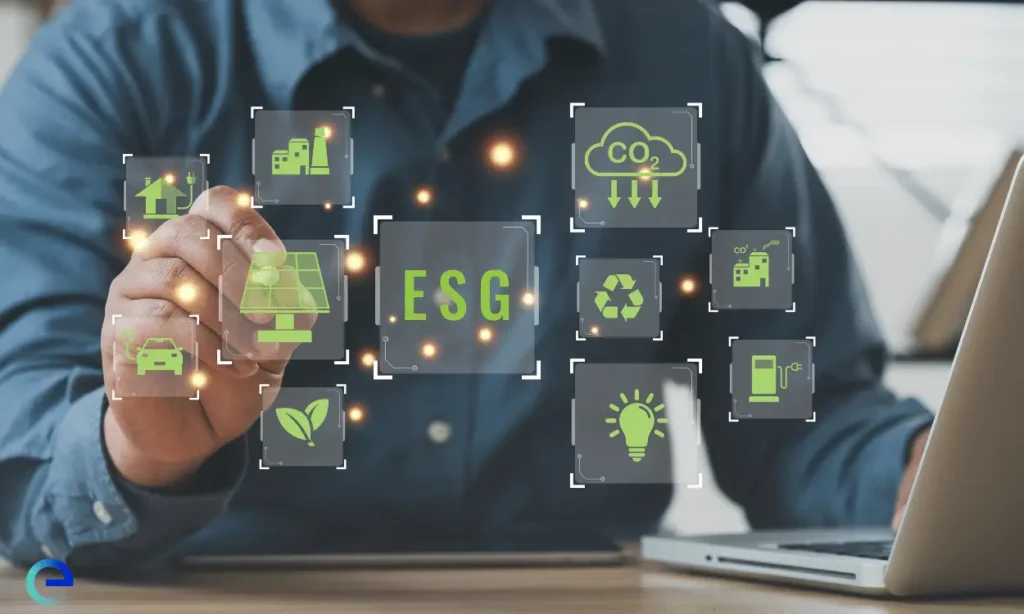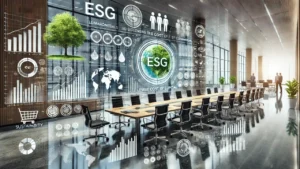Across regions and sectors, organisations are restructuring internal teams to align with environmental, social, and governance priorities. The result is a clear, urgent demand for professionals equipped with sustainability expertise. These are not limited to environmental roles alone. They span across finance, operations, strategy, technology, compliance, and stakeholder engagement.
What follows is a breakdown of the most relevant and strategically significant career paths in sustainability for 2025. Each role has been selected based on industry relevance, regulatory alignment, and market demand—providing a detailed reference for both professionals and business leaders.
Chief Sustainability Officer (CSO)
Function: Executive Strategy and Governance
The Chief Sustainability Officer is the senior-most authority overseeing a company’s sustainability agenda. This role drives cross-functional alignment between ESG strategy and corporate performance, ensuring long-term business resilience.
Key Responsibilities
- Define and institutionalize the sustainability strategy
- Oversee ESG goal-setting, risk alignment, and disclosure processes
- Collaborate with legal, finance, and operations for regulatory compliance
- Report progress to executive board and external stakeholders
Required Expertise
- Deep knowledge of ESG reporting standards (GRI, ISSB, CSRD)
- Executive leadership with systems-level thinking
- Capacity to integrate sustainability into capital allocation and risk management
ESG Analyst
Function: Data, Disclosure, and Investment Screening
ESG Analysts evaluate companies’ environmental, social, and governance practices to assess risk exposure and sustainability performance. They work in investment firms, rating agencies, and corporate sustainability teams.
Key Responsibilities
- Conduct ESG materiality assessments
- Monitor and quantify ESG KPIs across industries
- Support investment teams with sustainability risk insights
- Maintain ESG scoring models and disclosure benchmarks
Required Expertise
- Strong quantitative and qualitative analysis
- Proficiency in ESG metrics, databases, and taxonomies
- Familiarity with impact measurement and assurance processes
Analytical Tools Used | Purpose |
MSCI ESG Manager | Portfolio ESG screening |
Refinitiv ESG Data | Peer benchmarking |
SASB Materiality Map | Sectoral risk mapping |
Sustainability Reporting Specialist
Function: ESG Disclosure and Assurance
Reporting specialists are tasked with developing ESG disclosures aligned with global standards such as GRI, ISSB, CSRD, and TCFD. They work with both internal data owners and external assurance providers to ensure credibility.
Key Responsibilities
- Prepare audit-ready sustainability reports
- Align disclosures with regional mandates (EU CSRD, SEC climate rule)
- Collaborate with finance, HR, and risk for data verification
- Ensure assurance and transparency in narrative and quantitative disclosures
Required Expertise
- Strong grasp of sustainability frameworks and double materiality
- Data governance and traceability
- Technical writing with regulatory acumen
Climate Risk and Strategy Consultant
Function: Transition Planning and Risk Modeling
Professionals in this role guide organizations through climate scenario modeling, physical and transition risk assessments, and climate-aligned strategy development.
Key Responsibilities
- Analyze climate-related financial disclosures and risk exposures
- Model climate scenarios under TCFD and NGFS guidance
- Integrate climate risk into enterprise risk frameworks
- Support net-zero target setting and emissions forecasting
Required Expertise
- Climate risk modeling (RCPs, SSPs)
- Financial impact quantification of climate hazards
- Familiarity with transition pathways and adaptation planning
Sustainable Operations Manager
Function: Efficiency, Waste Reduction, and Circularity
This operational role ensures sustainability principles are embedded in everyday processes, from procurement to production.
Key Responsibilities
- Implement energy efficiency and resource optimization programs
- Lead waste management and lifecycle analysis
- Promote circular economy models and closed-loop supply chains
- Train cross-departmental teams on sustainable practices
Required Expertise
- Environmental engineering or operational excellence
- ISO 14001, ISO 50001 certifications
- Life cycle assessment (LCA) and circularity metrics
Environmental Policy Director
Function: Regulatory Affairs and Strategic Advocacy
This role shapes and influences internal and external environmental policy in alignment with evolving legal frameworks and global standards.
Key Responsibilities
- Draft company-wide environmental policies
- Monitor national and international environmental legislation
- Represent corporate interests in policy dialogues and forums
- Lead environmental impact assessments
Required Expertise
- Knowledge of global environmental treaties and national compliance regimes
- Legal and policy analysis skills
- Capacity for multi-stakeholder engagement and lobbying
Corporate Responsibility Manager
Function: Social and Community Impact
This role manages a company’s non-financial obligations toward employees, communities, and social ecosystems.
Key Responsibilities
- Lead corporate social responsibility (CSR) strategy
- Coordinate philanthropic programs and volunteering initiatives
- Conduct social impact assessments
- Monitor human rights and supply chain ethics compliance
Required Expertise
- Familiarity with UNGC, UNGPs, and human rights due diligence
- Stakeholder engagement and diversity equity inclusion (DEI)
- Reporting alignment with SDGs and social metrics
Summig up:
The sustainability landscape is changing rapidly. What was once seen as a secondary function is now integral to strategic planning, financial reporting, and risk governance. As new regulations arrive and investor expectations grow sharper, companies are building ESG and sustainability teams from the ground up.
For professionals, this is the moment to act. These roles offer future-proof opportunities in finance, energy, supply chain, compliance, technology, and policy. The skillsets required are evolving, but the demand is clear.
At IFRSLAB, we help businesses identify, structure, and strengthen their internal sustainability functions. Whether you are scaling your ESG reporting team, training your executives, or hiring your first sustainability lead — we bring technical clarity and implementation support.
Speak with us at IFRSLAB to align your business with tomorrow’s sustainability expectations.





